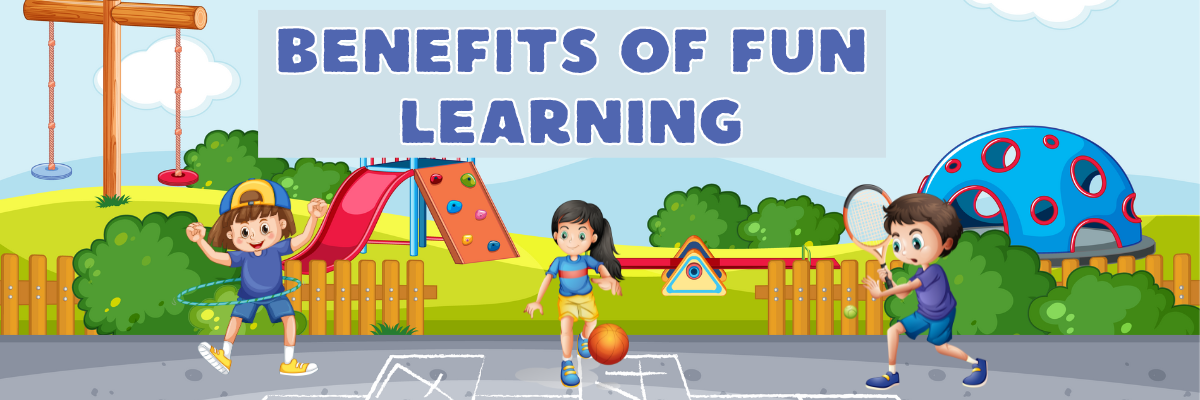It might be challenging to understand the concept of enjoyment in education or Benefits of Fun Learning. But deep down, we all know that learning is enjoyable. At the very least, it can and should be. When was the last time you sat down solely to learn something new or advance your professional skills? Self-development is a fascinating concept, but the actual practice can be tedious. After all, you have to put in a lot of tedious, difficult labour before you see any results. As a result, maintaining motivation can be difficult.
Although I don’t always enjoy being taught, Winston Churchill famously remarked, “Personally, I’m always ready to learn.” Sadly, this is how the majority of us view Benefits of Fun Learning and growth.
That’s because typical training methods haven’t changed since Churchill was snoring in a classroom decades ago. Even if technology has improved since then, you probably don’t feel particularly excited about the prospect of using an online learning platform.
But shouldn’t the prospect of using superpowers we didn’t know we possessed excite us? Shouldn’t we anticipate the new lessons that each day may offer as we awaken?
Why is corporate training so… corporate if that’s the case? This prompts the query of how to make learning enjoyable for adults. In fact, that is our area of expertise. And we’ll divulge all of our trade secrets in this piece!
The Study And Benefits Of Fun Learning In Education
You can observe a beneficial impact on your learners and the organisation when learning is enjoyable. Fun, after all, boosts motivation levels and influences what we learn and how much information we retain.
Benefits of Fun Learning is a continuous process. It calls for perseverance and commitment. If the encounter is enjoyable, students will remain enthralled and keep returning for more.
Your workout regimen must be enjoyable as a result. We even contend that if your training programme isn’t enjoyable and engaging, it won’t be successful. In actuality, that’s not simply a nagging notion; it’s a bare, unvarnished fact.
- According to a study published in The Journal of Experimental Education, when the lecturer employed humour in their lectures, the students performed better on their final exam.
- In her book, neurologist Judy Willis demonstrates how having fun raises dopamine, endorphin, and oxygen levels. All of these hormones are necessary for effective learning.
- In research for the Journal of Vocational Behaviour, Michael Tews discovered that pleasant working environments encourage people to try new things.
- Dr. Laura Kubansky’s research reveals the health benefits of having fun.
- It has been demonstrated by a number of eminent researchers, including Dulay & Burt (1977) and Krashen (1982), that people learn more effectively while they are experiencing intense pleasant emotions.
These are but five succinct illustrations from the wealth of research on the effects of creating an enjoyable learning environment. It is obvious how enjoyment can affect learning efficiency, memory retention, and the encouragement of self-led learning.
As a result, science supports our claim that Benefits of Fun Learning can and can be enjoyable. It’s time to act on the advice and spice up your training sessions.
Why Is Fun In Benefits Of Fun Learning Is Important?
Without hilarity, amusement, and fun, life would be dreary and downright boring. We can all agree that life is too short to waste it on the mundane. Therefore, it only makes sense to make sure there is room for excitement in your organisation.
There are various ways to have fun at work. Let’s investigate some of the ways that having a little fun can have a significant impact.
1. Boost Your Students’ Productivity
It should come as no surprise that a positive work environment makes us happier. And this could have a significant impact on your company!
What is good news? Employee happiness increases productivity by 12%! The wonderful news? Positive attitudes grow for other reasons besides happiness. According to research, merely laughing increases productivity and accuracy.
So the next time you have a difficult task, a tight deadline, or back-to-back calls ahead of you, an informal #a joke-off might be just what you need to get you going!
2. Less Vacant Seats
We’re not talking about Musical Chairs Monday, but it sounds like a great idea while we’re at it. Instead, we’re discussing the reality that having fun at work reduces absenteeism and worker turnover.
In fact, studies show that 62% of those who participate in enjoyable work activities don’t take any sick days in the three months that follow. However, if they choose not to participate, the number of persons shrinks to just 38%.
As a result, plan enjoyable events at work and make sure your workplace has a welcoming and laid-back attitude. By doing this, you can cut costs associated with hiring procedures or using temporary labour.
3. Increase Resistance
Resilience is crucial in difficult situations, whether you’re dealing with a company crisis, having a poor day at the office, or simply having a bad hair day. Laughter and joy can be of assistance here! It’s beneficial to our health and welfare, after all.
A good laugh can actually reduce stress and strengthen the immune system. And did you know that after a good laugh, our muscles can rest for up to 45 minutes?
Promoting a joyful and humorous work environment helps shield employees from the pressures of regular workday responsibilities. As a result, you may build a workforce that is more robust.
4. Boost Your Creativity
Jack is bored when he only works and never plays. It’s true that without a little humour at work, employees grow drab and uninspired.
Their creativity consequently diminishes. On the other hand, 55% of employees who participated in a fun activity in the previous six months feel more creative. Therefore, originality is crucial for the success of a company.
After all, people are more likely to freely share their thoughts in an environment where they can laugh. Naturally, this creates a society in which ideas exchange effectively. It is obvious that having a little fun may have a huge impact on company creativity.
5. Provide For All Learners
Different people define fun differently. The Harley Davidson of one guy may be someone else’s tiny scooter. Similarly, one person’s dream vacation for snowboarding may be another person’s vertigo nightmare.
While most people enjoy themselves, some do so more than others. In fact, 79% of millennials—compared to only 55% of earlier generations—believe that having fun at work is crucial.
This makes sense given how much the business world has changed recently, moving away from strict cubicles and towards more laid-back settings.
Additionally, fun can seem different depending on your learners’ position within the organisation. For instance, compared to 29% of graduates, only 14% of company owners find dress-down days enjoyable. The study also demonstrates that business owners are less likely than employees to appreciate pleasure at work.
As a result, you must ascertain what fun means to your staff members and students. So, the next time you’re organising a staff conference, social event, or wellness strategy for your firm, ask the participants what they want.
The only way to make the fun inclusive and meaningful is in this way! It enables you to guarantee that everyone’s conceptions of fun are equally represented and recognised.
6. Make Having Fun A Habit.
It’s not enough to merely see a drab office and conclude that something needs to be done to liven things up. Let’s plan a team outing, celebration, dance-off, or any other special event.
The morale will likely temporarily increase as a result of such activities, but how long will this serotonin high last? In truth, enjoyment must develop into a habit in order to lead to happiness and success.
As a result, you should work to include humour into your workplace culture. And, of course, incorporate employee happiness, engagement, and motivation into your Benefits of Fun Learning culture!

